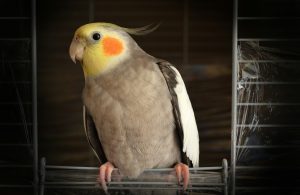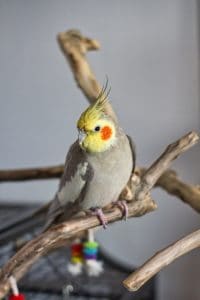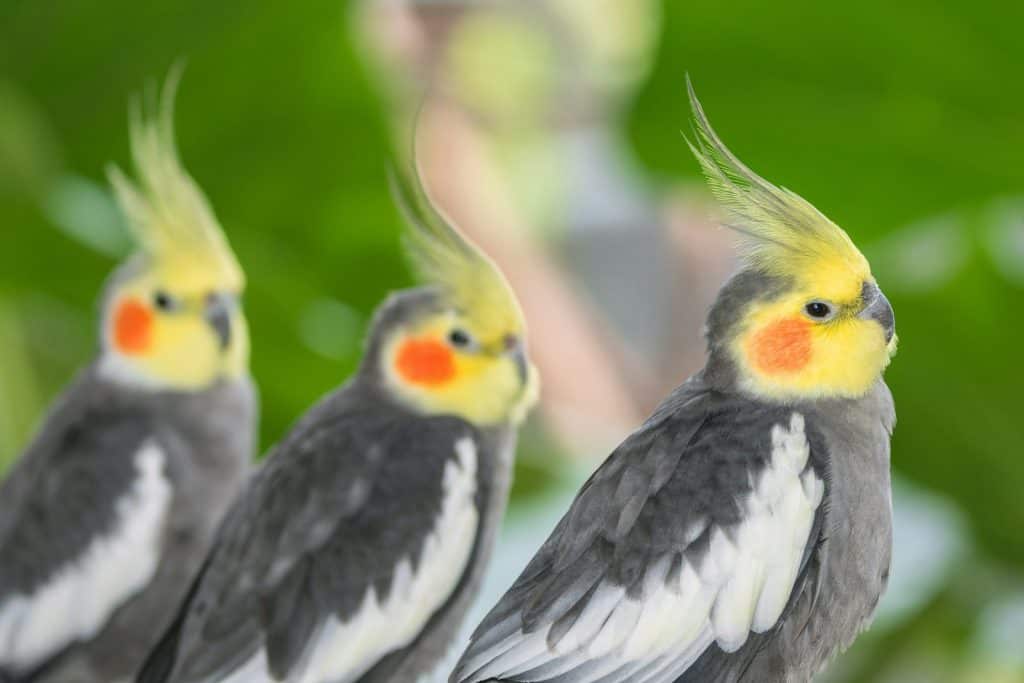As a devoted cockatiel owner, I’ve learned that these charming birds require thoughtful seasonal care tips for cockatiels. Adapting your care routine to accommodate the varying temperatures and conditions throughout the year is crucial for keeping your feathered friend healthy and happy. Whether it’s the brisk winds of fall or the scorching heat of summer, each season brings its own set of challenges and opportunities for cockatiel care.
Understanding the specific needs of your cockatiel during these times can seem daunting, but it’s essential for their well-being. From adjusting the temperature of their environment to modifying their diet and exercise routines, small changes can make a big difference. Let’s dive into some key tips that will help you ensure your cockatiel thrives no matter what the weather outside brings.
Seasonal Care Tips for Cockatiels: Challenges
Spring and Summer Care
As temperatures rise in spring and summer, I ensure cockatiels adapt to these warmer months with a few key adjustments. Temperature Control becomes crucial, as cockatiels thrive in environments between 65°F and 80°F. It’s essential to maintain this range inside your home to prevent heat stress. I often use fans or air conditioning to keep the area cool, but avoid placing your cockatiel in direct airflow, which could cause drafts.
I also focus on Humidity Levels during these months. Cockatiels can suffer from dry skin and feathers when humidity drops, so adding a humidifier near their cage can be beneficial. However, too much humidity may foster fungal growth, so I keep a balance that supports a Healthy Bird without encouraging mold in the cage.
Seasonal Diet Changes play a role as well in keeping your Feathered Friend thriving during spring and summer. I increase the amount of fresh fruits and vegetables in their diet to ensure they stay hydrated and receive all necessary nutrients. Watermelon, cucumber, and leafy greens are excellent for hydration; meanwhile, I always provide clean water daily.

Fall and Winter Protection
Moving into the colder months, fall and winter, requires a shift in care to ensure your cockatiel’s wellbeing isn’t compromised. Temperature Control is again vital as indoor heating can dramatically reduce humidity and overheat your pet bird. I monitor the cage’s location to ensure it isn’t too close to heat sources like radiators or heaters and maintain a draft-free area.
As the diet of cockatiels needs to adapt to less active months, I focus on a bird nutrition mix that supports their immune system during the cold season. This includes high-quality seeds, pellets, and a careful selection of fruits and veggies rich in vitamins. Additionally, to combat the drier air, I might integrate a shallow water bath once a week to support proper feather maintenance and prevent skin dryness.
Seasonal Care Tips for Cockatiels also include inspecting your pet more frequently for signs of discomfort or illness, as these can quickly escalate in less ideal temperatures. Ensuring the cleanliness of food and water dishes is crucial year-round but even more so in seasons where a Healthy Cockatiel might be more susceptible to health issues. Regular cage cleaning and checking for any drafty spots help in maintaining an optimal living environment.
By understanding these seasonal nuances and adjusting care routines accordingly, I help my cockatiels navigate through the year healthily and happily. Each season brings its own set of challenges, but with the right knowledge and tools, you can ensure your cockatiel stays healthy and vibrant through them all.
Nutrition Across the Seasons
Seasonal Diet Adjustments
As seasons change, so do the dietary needs of cockatiels. I recommend adjusting your feathered friend’s diet to ensure it remains nutritious and appropriate for the external environmental changes.
Spring and Summer: During these warmer months, cockatiels enjoy a variety of fresh foods. I encourage incorporating fresh fruits and vegetables into their diet. Foods like carrots, apples, and leafy greens not only provide essential vitamins but also help in maintaining hydration levels, which is crucial as temperatures rise. It’s also an excellent time to offer them sprouted seeds, a powerhouse of nutrition.
Fall and Winter: As we move into the colder months, your cockatiel’s diet should shift towards higher energy foods. This includes an increase in high-quality seed mixes and pellets to help them maintain their body heat and energy levels. Warm cooked foods, such as plain cooked quinoa or oatmeal, can provide that extra comfort on a chilly day. Also, ensure they always have access to clean, fresh water, as indoor heating can dry out their environment.
Essential Supplements for Changing Weather
Navigating through the shifts in weather can be challenging for your cockatiel, making dietary supplements a crucial part of seasonal care.
Vitamin D3: With limited sunlight during the fall and winter months, a vitamin D3 supplement supports calcium absorption, crucial for maintaining healthy bones and feathers.
Probiotics: Given the change in diet and possible stress due to weather changes, adding probiotics to your cockatiel’s diet can support their digestive system and help maintain a balanced gut flora.
Omega Fatty Acids: Supplements like Omega-3 and Omega-6 fatty acids are beneficial year-round but especially during the colder months to aid in keeping the skin and feathers in good condition.
Incorporating these adjustments and supplements into your cockatiel’s care regimen ensures they not only survive but thrive throughout the year, adapting seamlessly across the seasons. Remember, a well-planned diet fosters a robust immune system, paving the way for a healthy, happy bird.
Comfort and Safety
Temperature Regulation in the Cockatiel Cage
Ensuring the cockatiel’s cage maintains a stable temperature throughout the year is crucial for the bird’s health and comfort. Cockatiels acclimate well to average household temperatures between 65°F and 80°F. However, maintaining a draft-free area is vital, especially during colder months when sudden drops in temperature can occur. Owners must avoid placing the cage near windows that are frequently opened or air conditioning vents that can cause sudden changes in temperature. In winter, a cage cover can help keep the warmth inside, while during summer, fans can help circulate air without creating direct drafts on the cage.
Preparing the Habitat for Seasonal Changes
Adapting the cockatiel’s habitat for seasonal changes isn’t just about temperature control; it’s about creating an environment that optimally supports their health year-round. As seasons change, so do the humidity levels. Cockatiels thrive in moderate humidity, so it may be necessary to use a humidifier in winter when indoor air tends to become dry. Conversely, ensuring the habitat isn’t overly humid during summer is equally important to prevent fungal infections.
Additionally, the placement of food and water dishes should be considered to avoid contamination from droppings, which is more likely if perches are directly above these dishes. Seasonal cleaning of the cage, including a thorough wash and disinfection of all accessories, perches, and toys, is essential to maintain a hygienic and safe environment for your feathered friend. Rearranging the habitat with seasonal appropriate toys and perches can also offer much-needed mental stimulation and physical exercise, aiding in keeping your cockatiel happy and healthy throughout the year.
Health Monitoring and Preventative Care
As a blogger specializing in cockatiel care, I’m dedicated to offering accurate and actionable insights for maintaining the health of your pet cockatiels throughout the different seasons. In this section, I’ll delve into the significance of monitoring the health of your feathered friend and ensuring preventative measures are in place to counter any seasonal health issues.
Recognizing Seasonal Health Issues
Monitoring your cockatiel’s health becomes especially crucial as seasons change. Seasonal shifts in temperature and humidity can predispose these sensitive birds to various health issues, such as respiratory problems in the colder months or heat stress during the hot summer days. Here are key signs I’ve learned to watch for in order to catch and address these issues early:
- Changes in Behavior: If your cockatiel is less active, more irritable, or shows changes in eating habits, these could indicate discomfort or illness triggered by seasonal changes.
- Respiratory Signs: Watch for any signs of breathing difficulties, wheezing, or excessive tail bobbing, which may indicate respiratory distress, a common issue during cold or overly dry seasons.
- Feather Condition: Any changes in the condition of feathers, such as plucking or excessive moulting, can be signs of stress or dietary deficiencies often exacerbated by seasonal changes.
By understanding and recognizing these signs early, you can take proactive steps to mitigate potential health issues.
Regular Vet Visits and Vaccinations
Regular vet visits are crucial for maintaining a healthy cockatiel. These visits allow for professional assessment of any changes that might not be evident at home but can be critical indicators of health. I recommend scheduling check-ups at least twice a year; however, the start of each new season is a good reminder to book these appointments. During these visits, the following should be prioritized:
- Comprehensive Examinations: Ensure your vet conducts thorough physical examinations to catch any early signs of illness.
- Vaccinations: Discuss recommended vaccines with your vet, especially if your cockatiel spends any time outdoors or has been exposed to other birds.
- Dietary Consultations: Seasonal changes can affect the nutritional needs of your cockatiel. A vet can provide guidance on adapting your bird’s diet to optimize its health, considering seasonal availability of foods and required nutrition levels.
Additionally, preventive measures such as regular cage cleaning and maintaining stable temperature and humidity levels in the cage environment are essential strategies to keep your cockatiel in prime condition. Preventing draft exposure in winter and ensuring adequate shade and ventilation in summer can help avoid temperature-related health issues.
By taking these preventative steps, you can ensure your cockatiel enjoys a healthy life regardless of the season. Keeping a watchful eye on these aspects will significantly contribute to the well-being of your beloved pet.
Behavioral Changes with Seasons
Understanding Season-Related Behavioral Shifts
In cockatiels, behavioral changes can be quite prominent as the seasons shift. These small parrots are sensitive to changes in daylight and temperature, which can significantly influence their behavior. During the spring, cockatiels often become more vocal and active as breeding season approaches. This increased activity and singing are their natural responses to the longer days and warmer weather.
Conversely, in the colder months, you might observe that your cockatiel becomes more withdrawn or lethargic. This is a natural reaction to the shorter daylight hours and cooler temperatures, which can simulate the conditions of their wild ancestors’ non-breeding season. It’s important to monitor these changes to ensure they are normal seasonal adjustments and not signs of health issues.
Managing Seasonal Stress in Cockatiels
Managing seasonal stress in cockatiels involves ensuring a stable environment that minimizes drastic changes that might affect their comfort. Here are several strategies I recommend:
- Temperature Control and Draft-Free Areas: Keep the cage in a location free from drafts yet ensure it does not get too hot. Sudden temperature changes can cause stress in pet birds. During winter, avoid placing the cage near heaters or radiators, and in the summer, ensure it doesn’t sit in direct sunlight.
- Adjusting Daylight Exposure: Since natural sunlight varies with seasons, consider using artificial lights to maintain a consistent light schedule throughout the year. This helps keep their circadian rhythm stable, reducing stress.
- Humidity Levels: Maintain optimal humidity levels in your bird’s environment. Cockatiels thrive in moderate humidity, as too dry or too moist conditions can lead to respiratory issues and skin irritation.
- Seasonal Diet Changes: Adjust their diet according to seasonal availability of fruits and vegetables to ensure they receive the necessary vitamins and minerals year-round. In winter, you might increase foods rich in vitamin A and C to support their immune system.
By understanding and adjusting to these behavioral shifts and stressors with each season, you can help maintain your feathered friend’s health and wellbeing. Regular vet checks remain crucial, as they provide professional guidance on your cockatiel’s specific health needs throughout the year.
Adapting your cockatiel’s care with the seasons is essential for their well-being. By understanding and responding to their needs—from temperature adjustments to dietary changes—you’ll ensure they remain healthy and spirited throughout the year. Remember, regular vet checks are crucial to catch any issues early and keep your feathered friend thriving. Embrace these changes with the confidence that you’re providing the best care possible, helping your cockatiel navigate the seasons with ease.

Frequently Asked Questions
Can cockatiels handle cold weather?
Cockatiels can tolerate a variety of temperatures, ideally between 65 and 80 degrees Fahrenheit. Keep the cage free from drafts and ensure gradual temperature changes to avoid health risks. Sudden temperature drops are particularly harmful.
What is the minimum safe temperature for cockatiels?
Cockatiels require temperatures of at least 70 degrees Fahrenheit to maintain health. Conditions cooler than this can lead to respiratory issues and other health problems.
At what temperature does it become too hot for cockatiels?
Temperatures above 104 degrees Fahrenheit (40 degrees Celsius) can be dangerous for cockatiels, as it may interfere with their natural cooling mechanisms, possibly leading to overheating.
What should you avoid doing with your cockatiel?
Avoid petting your cockatiel along the back and under its wings, wrestling with its beak, and overexposing it to light (more than 12 hours/day). Do not place the bird on your shoulder or head to prevent aggressive behavior, and avoid providing a nesting box unless breeding is intended.
How long do cockatiels typically live when kept as pets?
Captive cockatiels usually live for 15 to 25 years, although they can live up to 30 years with proper care. Lifespan may vary depending on genetic factors and the quality of care provided, including diet, environment, and regular veterinary check-ups.
Key take aways on Seasonal Care Tips for Cockatiels
- Temperature 65–80 °F year-round, draft-free.
- Spring/Summer: add hydrating fruits, light misting, shade.
- Fall/Winter: up high-energy seeds, cooked quinoa, humidity 40-60 %, weekly bath.
- Supplements: vit-D₃ in low-sun months, probiotics for gut, omega-3 for skin/feathers.
- Behavior watch: spring vocal breeding surge, winter lethargy—light timer keeps rhythm.
- Bi-annual vet checks, cage deep-clean each season, rotate toys for mental health.




